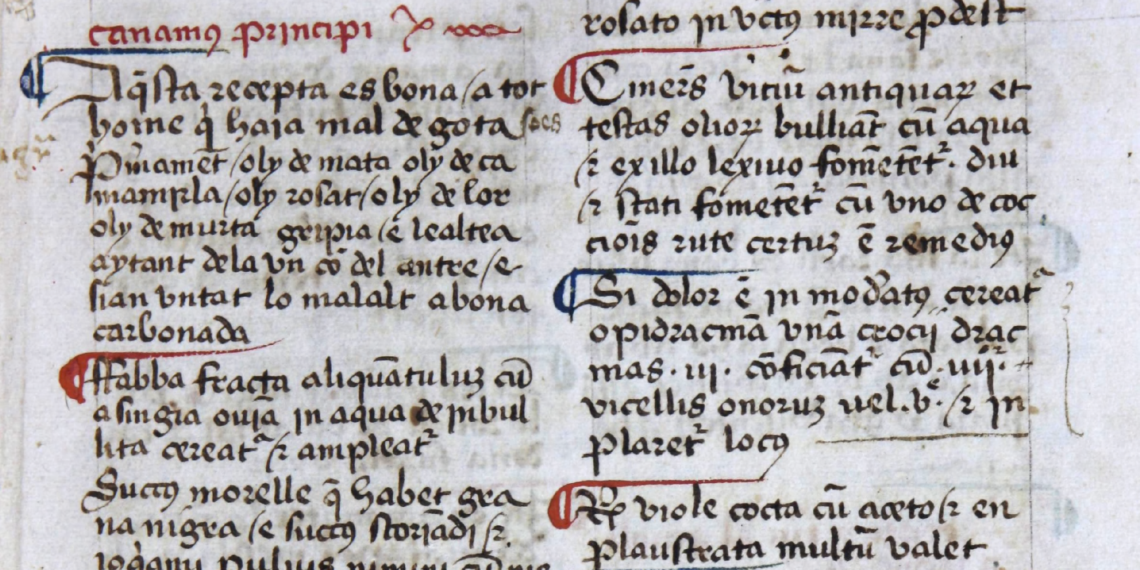The Llibre de Sent Soví is celebrated as one of the oldest surviving cookbooks from medieval Catalonia, offering a rare glimpse into the culinary practices and cultural exchanges of the era. Believed to have been compiled in the 14th century, this invaluable manuscript not only provides recipes but also reflects the social, economic, and cultural influences that shaped the region’s gastronomy.
At a time when cookbooks were a luxury reserved for the nobility and wealthy households, the Llibre de Sent Soví was an indispensable guide for those who managed the kitchen. The recipes contained within reveal an impressive blend of local ingredients and the influences of neighboring cultures. Medieval Catalonia was a crossroads of trade and ideas, and the cookbook’s pages showcase a fusion of Arab, Mediterranean, and indigenous culinary traditions. Dishes often feature a clever use of spices, herbs, and techniques that hint at the sophisticated palate of its time.
The manuscript is written in Old Catalan, making it not only a culinary record but also a linguistic and cultural artifact. Its existence testifies to the region’s rich history of gastronomy and the early appreciation for the art of cooking as both a necessity and an expression of identity. Through its detailed instructions, the Llibre de Sent Soví provides modern readers with insights into medieval dietary habits, ingredients that were readily available, and the inventive methods employed by cooks long ago.
Today, the Llibre de Sent Soví is studied by historians, culinary experts, and linguists alike. It stands as a testament to the enduring legacy of Mediterranean cuisine and serves as an inspiring reminder of how food can bridge centuries, connecting us to the past in every delicious bite.





